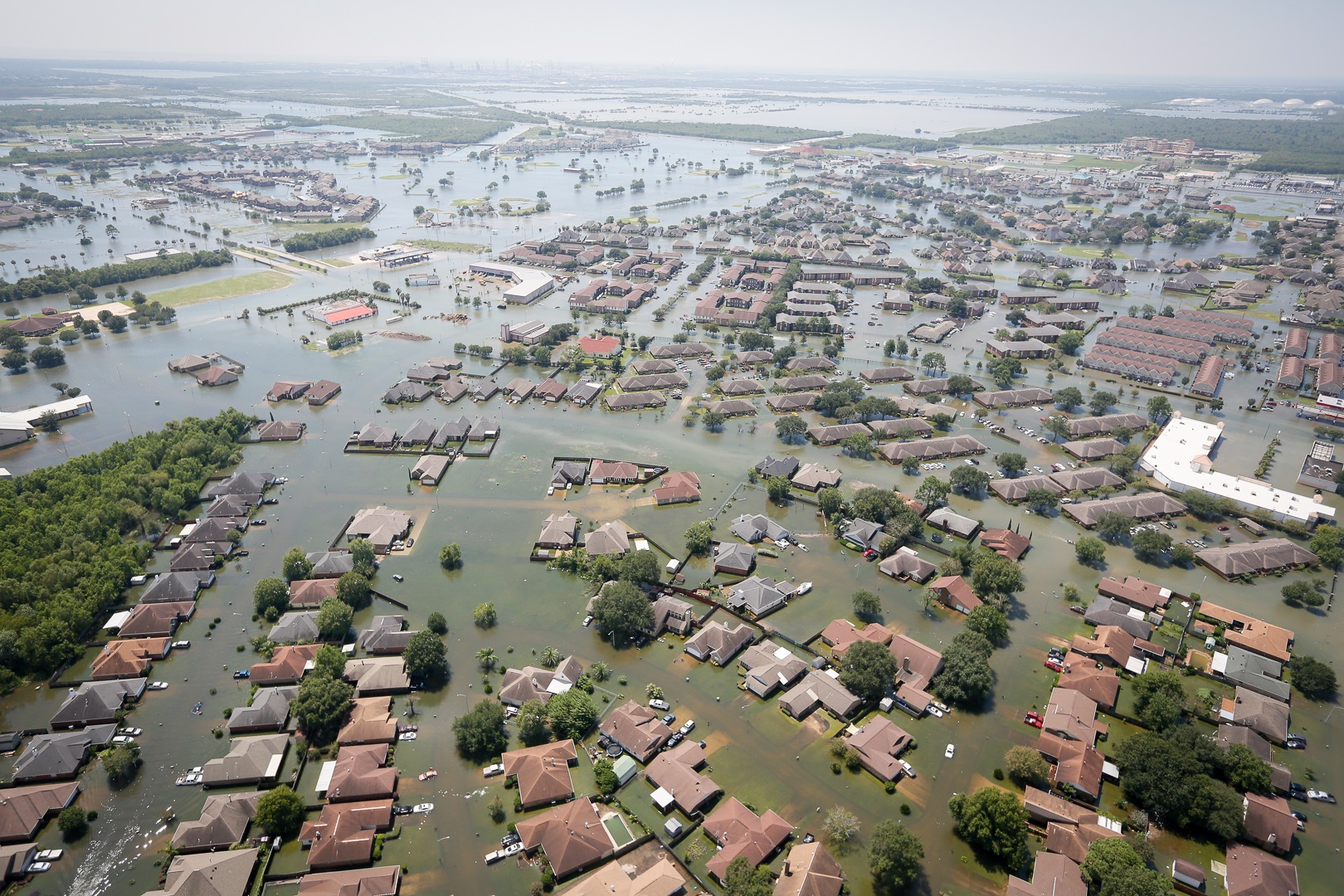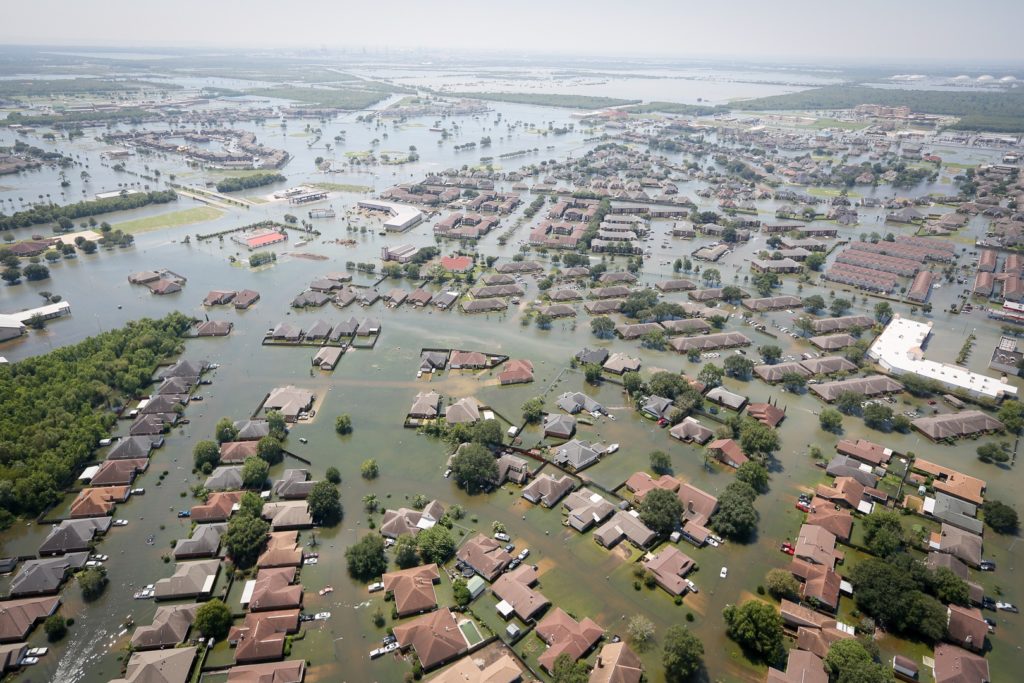I’ll Just Be Over Here In My Fallout Shelter
Legal Planet: Environmental Law and Policy 2019-02-16

It would be impossible to react to every piece of misinformation or poor reporting about climate change—let alone every misguided opinion editorial—that lives online today, but Bret Stephens’ February 15 piece in the New York Times strikes me as warranting a response. That’s not because of the clickbait title (“Is Nancy Pelosi A Climate Skeptic?” You guessed it, she’s not.) or the now oft-repeated criticism of the Green New Deal (it’s too pie-in-the-sky, and everyone thinks so, says Mr. Stephens). It’s because of the dangerous way the piece characterizes the problem of climate change.
Mr. Stephens writes that no one really knows how bad climate change is. If its effects will be severe and widespread, he admits, incremental policy change would be “like trying to put out a forest fire with a plant mister.” The problem, he says, is that it’s all talk, and that nobody’s willing to take more than “piecemeal steps” to address climate change, so that must mean it can’t be so terrible. He says even “activists have been able to elide this contradiction, claiming both that climate change is a World War III-level challenge, and that we can deal with it relatively easily.” If that’s the case, we should just admit that climate change is a problem more like poverty: “a serious problem we can work patiently to solve without resort to extreme measures.”
There’s a lot of wrong to unpack here, but I’m going to give it a shot.
First thing’s first. Mr. Stephens admits that if the effects of climate change will be anything near as bad as what we think they could be, a massive society-scale mobilization to address the issue is totally appropriate. The problem is that he then acts like we don’t know whether or not the impacts will be bad at all. We have all sorts of evidence that the effects of climate change will be catastrophic. In case Mr. Stephens missed it, a group of esteemed and credible scientists released a IPCC special report last year in which they explained their findings that we are on track to destroy most of the world’s coral reefs beyond repair, that net negative emissions may be needed to reverse ocean acidification and minimize sea level rise, and that we are already experiencing the ill effects of climate change. They expressed these findings with high confidence. The report was designed to examine the effects of warming at 1.5⁰C. The Trump Administration itself estimates we’re headed for 4⁰C of warming.

Houston after Hurricane Harvey. (U.S. Air National Guard photo by Staff Sgt. Daniel J. Martinez)
We know that climate change will cause—and has already caused—extreme disaster events, human migration, and ecosystem destruction. These problems are only going to grow and increase in scale, and surviving the changes won’t be comfortable: just ask anyone who lived through the last two seasons of California wildfires, or Hurricanes Maria, Harvey, and Katrina (to name a few catastrophic events we can expect to see more of in a warming world). Pretending like we don’t have evidence the problems are real simply isn’t tenable anymore.
Second, nobody serious about climate change thinks it’s going to be easy to address. I’m not sure what planet Mr. Stephens has been living on, but I haven’t talked to anyone recently who thinks we can deal with the challenge of climate change “relatively easily.” The Green New Deal, as he himself points out, doesn’t prescribe “relatively easy” solutions to the problem. I can’t recall the last time someone told me I should just bike more and climate change would go away, as Mr. Stephens suggests. (That has to be the most creative recasting I have ever seen of the truism that addressing climate change is likely to require many Americans to rethink the use of creature comforts, like frequent car trips and single-use plastics, that have become staples in their lives.) What’s more, Mr. Stephens acts like suggesting we should all do our part is somehow at odds with the concept of a society-wide mobilization to address climate change. Allow me to point out that this is precisely the strategy the American government has employed before to address major threats: pair sweeping government efforts with individual encouragements for every American to contribute. These look familiar?


Climate change is a big problem and it’s going to require a multi-faceted approach, which is exactly why the Green New Deal thinks about it in those terms. Indeed, the problem is so big that scientists are exploring all kinds of creative and controversial ways to cool the planet as we struggle to wean ourselves off fossil fuel and take big steps to reduce emissions. But governments and nations are made up of people, and our individual choices matter, too. The fact that climate activists have encouraged folks to think critically about their day-to-day decisions doesn’t mean they’re saying the problem is “easy” (it’s actually pretty hard to get people to change ingrained behaviors, even to improve their own health). It means they’re saying this heavy lift is going to take all of our hands.
Finally, the fact that governments haven’t been willing to take more than incremental steps doesn’t make the problem less serious. This might be the most dangerous idea in the piece, both for the tail-wagging-the-dog logic of it, and because Mr. Stephens’ not-so-subtle message is that reasonable people of all stripes should see incremental action as the best, most logical way forward. If Nancy Pelosi is questioning the wisdom of the Green New Deal, he writes, “where do [climate activists] imagine the rest the country is?” He goes on to explain that “[c]limate change means change, not doom” (I’m guessing the residents of many island nations would disagree) and tells us we can all leave our “impractical radicalism” and “feckless virtue-signaling” behind in favor of the free market (and ostensibly the very sorts of market-based policies that have been oh-so-successful at combatting the problem to date) and maybe a few climate resilience efforts here and there (efforts which to date have been underfunded and have left many vulnerable communities unprotected).
I’ll set aside for a second that this is the same throw-in-the-towel approach that brought us the Trump Administration’s “we’re going to reach 4⁰C warming so why stop emitting greenhouse gases when people could make money doing it” rationale, and focus instead on the false choice Mr. Stephens is creating between meaningful climate action and capitalism. The United States has mobilized against major threats before without renouncing capitalism—the Green New Deal’s nothing new on that score. No one has suggested that we ditch the entire concept of a “dynamic market econom[y]” to achieve progress against climate change. (Now who’s being alarmist?) But let’s please stop pretending that our government doesn’t already manipulate the market through subsidies that choose winners and losers among American businesses and industries. The Green New Deal is asking us to make some different choices, but it’s not asking us to throw away capitalism entirely.
Clearly, there’s a lot that troubles me in Mr. Stephens’ piece. But this is the idea that I find most troubling: the suggestion that it’s just not reasonable to think about climate change the way the magnitude of the challenge actually demands we think about climate change, because nobody wants to think about it that way, not even liberals. Lots of people don’t like the Green New Deal resolution, because it forces us to acknowledge a lot of uncomfortable realities about the damage we’ve done to our planet and to ourselves. But there’s no wisdom in ignoring the problem, and there’s even less wisdom in holding up our own discomfort as an excuse not to confront it.
Mr. Stephens concludes, “Those who believe climate change will become irreversible, uncontrollable and catastrophic in a few years should get to work on their fallout shelters. The E.P.A. won’t be coming to the rescue.” Well, Silicon Valley billionaires seem to have taken the hint and are buying property in New Zealand to hedge against the coming storm. I don’t have that kind of money, and I love Los Angeles, so I’ll be fighting for better climate policies here at home. And, by the looks of the current administration’s policies, getting to work on my fallout shelter.